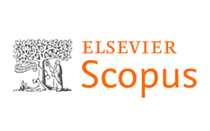СТРАТЕГІЯ ЕКОНОМІЧНОЇ ДИПЛОМАТІЇ ДЛЯ ВІДНОВЛЕННЯ ПІСЛЯ СПОВІЛЬНЕННЯ ГЛОБАЛІЗАЦІЇ («СЛОВБАЛІЗАЦІЇ»)
Ключові слова:
Глобалізація, словбалізація, протекціонізм, економічна дипломатія, агентства з просування експорту (АПЕ).Анотація
Досліджено перехід від глобалізації до її більш обмеженої моделі, яка називається «повільна стабілізація» або «словбалізація», в контексті найбільшого виклику економічній дипломатії. Визначено проблеми глобалізації, окреслено її можливі причини та наслідки та розглянуто можливість повернення до всебічного протекціонізму як вияву економічної дипломатії національних економічних систем в умовах глобалізації та «словбалізації». Новизна цієї роботи полягає у трактуванні економічної дипломатії як інструменту підтримки економічного відновлення в унікальному пандемічному контексті, сприянні визначення національної та міжнародної політики для створення розвинутої мережі, яка зможе об’єднати уряд, посольства, консульства, агентства, установи, компанії та домогосподарства для досягнення ефективної співпраці. Зроблено висновок, що економічна дипломатія загалом, а також агентства з просування експорту заохочують стимулювання експорту та зростання торгівлі. Виявлено, що стратегія економічної дипломатії є рушієм відновлення і може допомогти у випадку спадання, визначаючи чітку експортну стратегію, створюючи велику мережу, яка залучає всіх суб’єктів господарювання, мережу офісів за кордоном для поширення експортної політики, використовуючи широкий ряд інструментів, зокрема двосторонні, регіональні та багатосторонні угоди.
Класифікація за JEL: F63, F68, O40.
Посилання
Bakas, A. (2015). Capitalism & Slowbalization: The Market, the State and the Crowd in the 21st Century. Dexter.
Bayne, N. & Woolcock, S. (2016). The new economic diplomacy: Decision making and negation in international economic relations (4th ed.). Taylor & Francis Group.
Bergeijk, P. A., Okano-Heijmans, M., & Melissen, J. (Eds.). (2011). Economic diplomacy: economic and political perspectives (Vol. 1). Martinus Nijhoff Publishers.
Campbell, D. (1994). Foreign investment, labour immobility and the quality of employment. International Labour Review, 133(2), 185–188.
De Falcis, E., Valentina, R., Solleder, O., & Ticku, R. (2018). What bang for the buck? Export promotion and trade extensive margin. ITC Working Paper Series, WP-02-2018.E. https://www.intracen.org/uploadedFiles/intracenorg/Content/Redesign/Projects/SME_Competitiveness/TPO%20-%20WP-02-2018.E.pdf
Dicken, P. (1992). Global shift: The internationalization of economic activity. Paul Chapman Publishing Ltd.
Flissak, K. (2015). Economic diplomacy mechanism: World experience and Ukraine. Journal of global economy review, 2(1), 26-33. https://mogmat.uowm.gr/ wpcontent/uploads/sites/19/2021/03/JGER_2_2015.pdf#page=27
Gygli, S., Haelg, F., Potrafke, N., & Sturm, J.-E. (2019). The KOF Globalisation Index – revisited. Review of International Organizations, 14(3), 543–574.https://doi.org/10.1007/s11558-019-09344-2
Hausmann, R., Hwang, J., & Rodrik, D. (2007). What you export matters. Journal of economic growth, 12(1), 1-25. https://doi.org/10.1007/s10887-006-9009-4
Hausmann, R., & Rodrik, D. (2003). Economic development as self-discovery. Journal of development Economics, 72(2), 603–633.
Hidalgo, C. A., Klinger, B., Barabási, A. L., & Hausmann, R. (2007). The product space conditions the development of nations. Science, 317(5837), 482–487. http://dx.doi.org/10.1126/science.1144581
Kneller, R., & Greenaway, D. (2005). Firm heterogeneity, exporting and foreign direct investment: A survey. University of Nottingham Research Paper Series, 2005/32. http://dx.doi.org/10.2139/ssrn.863964
Knoema. (2020). National accounts main aggregates database (Version of December 16, 2020) [Data set]. https://knoema.ru/UNNAMAD2018/national-accounts-main-aggregates-database.
Lakatos, C., & Kutlina-Dimitrova, Z. (2017). The global costs of protectionism. Policy Research Working Paper, No. 8277. http://documents.worldbank.org/curated/en/962781513281198572/The-global-costs-of-protectionism
Lederman, D., Olarreaga, M., & Payton, L. (2010). Export promotion agencies: Do they work?. Journal of development economics, 91(2), 257–265. https://doi.org/10.1016/j.jdeveco.2009.09.003
Melitz, M. J., & Redding, S. J. (2014). Heterogeneous firms and trade. In G. Gopinath, E. Helpman, & K. Rogoff, (Eds.), Handbook of International Economics. Elsevier.
Milanovic, B. (2012). Global income inequality by the numbers: In history and now – An overview. World Bank Policy Research, Working Paper 6259.https://doi.org/10.1596/1813-9450-6259
Okano-Heijmans, M. (2011). Conceptualizing economic diplomacy: The crossroads of international relations, economics, IPE and diplomatic studies. The Hague journal of diplomacy, 6(1-2), 7–36. http://dx.doi.org/10.1163/187119111X566742
Olarreaga, M., Sperlich, S., & Trachsel, V. (2017). Export promotion: What works?. FERDI Working Paper, No. 184. https://ferdi.fr/dl/dfN3jtnfSNX3EaQeYSq1tdSCzv/ferdi-p184-export-promotion-what-works.pdf
Oxford Economics. (2011). The new digital economy: How it will transform business. https://www.pwc.com/cl/es/publicaciones/assets/the-new-digitaleconomy.pdf
Ortiz-Ospina, E., & Beltekian, D. (2018). Trade and globalization. Our World in Data. https://ourworldindata.org/trade-and-globalization
Rose, A. K. (2007). The foreign service and foreign trade: embassies as export promotion. World Economy, 30(1), 22–38.
Saner, R., & Yiu, L. (2003). International economic diplomacy: Mutations in postmodern times. Discussion Papers in Diplomacy, No. 84. http://www.businessdiplomats.com/images/articles/files/Postmodern_diplomacy.pdf
Sharov, O. (2018). Economic diplomacy as a symbiosis of science and politics. International Economic Policy, 1, 64–87. http://iepjournal.com/journals_eng/28/2018_3_Sharov.pdf
van Bergeijk, P. A. G. (2009). Economic diplomacy and the geography of international trade. Edward Elgar Publishing
Verhoogen, E. A. (2008). Trade, quality upgrading, and wage inequality in the Mexican manufacturing sector. The Quarterly Journal of Economics,123(2), 489–530. https://doi.org/10.1162/qjec.2008.123.2.489
World Bank (2020). Global Economic Prospects. https://doi.org/10.1596/978-1-4648-1612-3
Yang, Y., & Mallick, S. (2010). Export premium, self-selection and learning-byexporting: Evidence from Chinese matched firms. The World Economy, 33(10), 1218–1240. https://doi.org/10.1111/j.1467-9701.2010.01277.x
##submission.downloads##
Опубліковано
Як цитувати
Номер
Розділ
Ліцензія
Автори, які публікуються у цьому журналі, погоджуються з наступними умовами:
- Автори залишають за собою право на авторство своєї роботи та передають журналу право першої публікації цієї роботи на умовах ліцензії Creative Commons Attribution License, котра дозволяє іншим особам вільно розповсюджувати опубліковану роботу з обов'язковим посиланням на авторів оригінальної роботи та першу публікацію роботи у цьому журналі.
- Автори мають право укладати самостійні додаткові угоди щодо неексклюзивного розповсюдження роботи у тому вигляді, в якому вона була опублікована цим журналом (наприклад, розміщувати роботу в електронному сховищі установи або публікувати у складі монографії), за умови збереження посилання на першу публікацію роботи у цьому журналі.
- Політика журналу дозволяє і заохочує розміщення авторами в мережі Інтернет (наприклад, у сховищах установ або на особистих веб-сайтах) рукопису роботи, як до подання цього рукопису до редакції, так і під час його редакційного опрацювання, оскільки це сприяє виникненню продуктивної наукової дискусії та позитивно позначається на оперативності та динаміці цитування опублікованої роботи (див. The Effect of Open Access).








